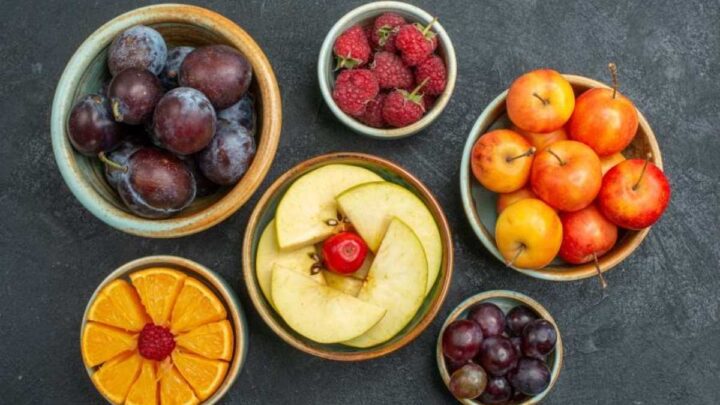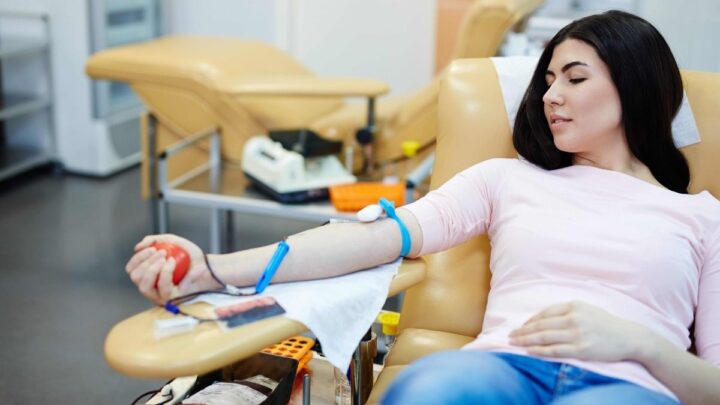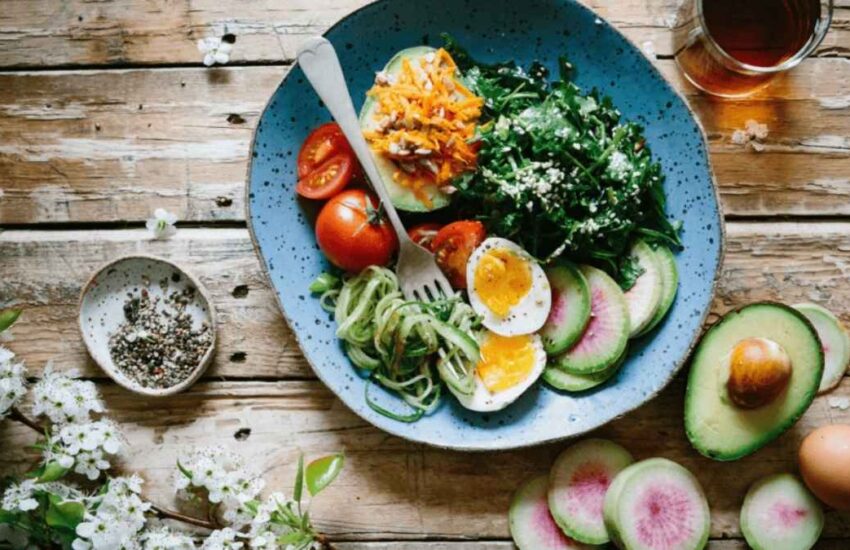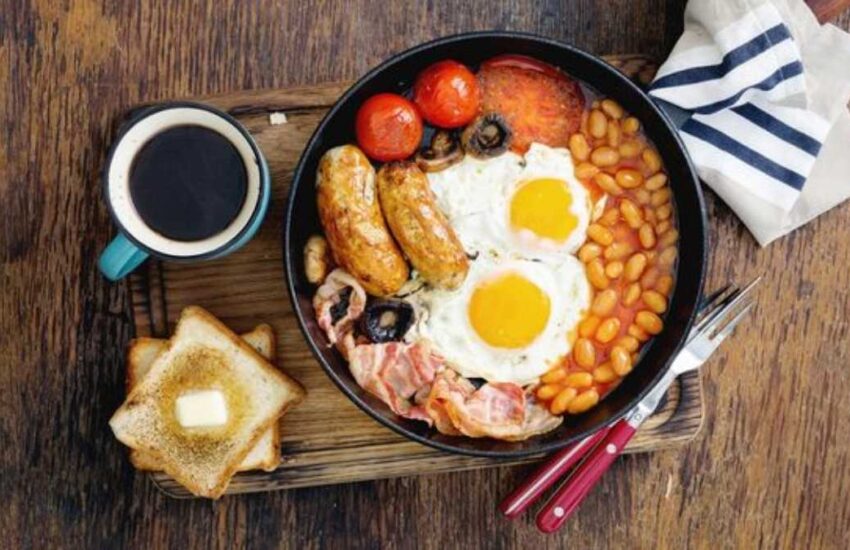What to Eat For Breakfast Before Donating Plasma?
Plasma donation offers a unique opportunity to help others while earning between $50 to $140 per donation. However, many donors don’t realize that plasma makes up 55% of their blood volume, making proper nutrition before donation crucial for their health and donation success. What to eat for breakfast before donating plasma can significantly impact the donation process and recovery.

Specifically, donors need to consume a balanced meal at least two hours before their appointment, focusing on essential nutrients that support their body’s needs. Additionally, proper hydration is vital, with experts recommending 1.5 to 2 liters of water in the days leading up to donation.
Let’s breaks down the ideal breakfast choices before plasma donation, backed by medical experts. Readers will discover practical meal planning strategies, essential nutrients to include, and how to prepare cost-effective breakfast options that meet donation center requirements while maintaining their health and energy levels throughout the process.
Essential Nutrients for Morning Donation
Let’s understand the right nutrients for plasma donation starts with knowing how different foods affect your body’s preparation process.
Iron-rich breakfast foods
The body absorbs iron differently depending on its source. Heme iron, found in animal products, has an absorption rate of up to 30%. Primarily, foods like eggs, beef, and turkey provide this easily-absorbed form. Moreover, non-heme iron from plant sources has a lower absorption rate of 2-10%.
To maximize iron absorption, pair iron-rich foods with vitamin C sources. Notably, citrus fruits, tomatoes, and colorful peppers enhance the body’s ability to use non-heme iron. A breakfast combining spinach with tomatoes, for instance, creates an ideal iron-absorption combination.
Protein requirements
Plasma contains vital proteins that need replenishment through diet. The recommended protein intake for plasma donors ranges from 50 to 80 grams daily. Particularly, focusing on protein intake the morning of donation supports the body’s ability to maintain proper plasma protein levels.
Foods that provide quality protein include:
- Eggs and lean meats
- Fish and poultry
- Beans and legumes
- Dairy products
Hydration basics
Since plasma is 90% water, proper hydration proves crucial for successful donation. Consequently, donors should consume 12 to 24 ounces of water 30 to 60 minutes before donation. This timing ensures optimal vein dilation and easier needle insertion.
For best results, avoid caffeine and milk on donation day as these beverages can reduce iron absorption. Furthermore, alcohol should be avoided the day before and day of donation since it promotes dehydration. The American Red Cross suggests drinking an extra 16 ounces of water before the appointment, beyond the daily recommended 72 to 104 ounces.

Building the Perfect Breakfast Plate
Creating the ideal breakfast plate before plasma donation requires careful attention to portion sizes and nutrient combinations.
Portion guidelines
A well-balanced breakfast plate primarily consists of three components. The first portion should include protein-rich foods taking up one-third of the plate. Rather than heavy meals, donors should opt for moderate portions that provide sustained energy without causing discomfort.
Four proven breakfast combinations that meet donation requirements include:
- Spinach and tomato omelet with cottage cheese
- Iron-boost smoothie bowl with vitamin C-rich fruits
- Banana and nut oatmeal
- Eggs with greens on whole-grain toast
Balance of nutrients
The key to successful plasma donation lies in combining complementary nutrients. Accordingly, pairing iron-rich foods with vitamin C sources enhances absorption. For instance, when consuming non-heme iron sources like spinach or whole grains, adding citrus fruits or tomatoes boosts iron uptake significantly.
Complex carbohydrates play an essential role in maintaining blood sugar levels during donation. Whole grains, sweet potatoes, and oatmeal provide steady energy release, preventing sudden drops in blood pressure. Overall, protein intake supports red blood cell production, making eggs, lean meats, and legumes valuable additions to the morning meal.
Timing also affects nutrient absorption. Generally, consuming breakfast at least two hours before donation allows proper digestion. This window ensures nutrients are readily available when needed during the donation process.
For optimal results, donors should avoid calcium-rich foods during breakfast, as these can interfere with iron absorption. Instead, choose calcium-free alternatives when preparing morning meals. This approach maximizes the benefits of iron-rich foods while supporting successful plasma donation.
Budget-Friendly Breakfast Options
Preparing what to eat for breakfast before donating plasma doesn’t have to strain your wallet. Smart shopping and preparation strategies can help maintain both your health and budget.
Cost-effective meal ideas
Affordable breakfast options that support plasma donation requirements primarily focus on protein-rich foods combined with iron sources. Eggs stand out as an economical powerhouse, providing 19 grams of protein in just three large eggs. Similarly, oats offer an excellent foundation for a nutrient-dense breakfast, delivering both fiber and sustained energy.
Essential budget-friendly combinations include:
- Fortified cereal with plant-based milk and dried fruits
- Peanut butter on whole-grain toast with banana
- Greek yogurt bowl with seasonal fruits
- Spinach and tomato omelet with cottage cheese
Bulk preparation tips
Planning ahead essentially reduces both cost and preparation time. Batch cooking breakfast items saves money while ensuring consistent nutrition for donation days. Subsequently, preparing ingredients in advance allows for quick assembly on busy mornings.
Meal prep success starts with portioning ingredients based on nutritional needs. For smoothies, pre-portion fruits and greens in freezer-safe containers. In fact, breakfast burritos and sandwiches can be assembled in advance and frozen, providing a quick and nutritious option.
Storage solutions
Proper storage ultimately determines the quality and safety of prepared meals. Food storage temperatures should stay between 50-70°F for dry goods, while refrigerators must maintain 32-40°F.
For optimal freshness, follow these guidelines:
- Remove items from cardboard packaging to prevent pest issues
- Store food at least 6 inches off the floor
- Label containers with preparation dates
- Implement a first-in-first-out rotation system
Reusable containers with proper sealing capabilities preserve freshness and prevent freezer burn. Glass containers with bamboo tops offer an economical and sustainable storage solution, perfect for breakfast components like cut fruits, prepared eggs, or overnight oats.
Seasonal Breakfast Adjustments
Adapting what to eat for breakfast before donating plasma requires thoughtful consideration of seasonal changes and their impact on the body’s nutritional needs.
Summer breakfast ideas
The warmer months call for lighter, refreshing options that maintain proper hydration levels while delivering essential nutrients. A yogurt-based parfait with fresh berries provides both protein and natural sugars, supporting energy levels throughout the donation process.
Primarily, summer breakfast combinations should focus on:
- Fresh fruit smoothie bowls topped with seeds and nuts
- Chilled overnight oats with seasonal berries
- Light protein shakes with almond milk
- Greek yogurt parfaits with honey drizzle
- Cold quinoa bowls with tropical fruits
Indeed, incorporating seasonal produce like strawberries, raspberries, and pineapple enhances the nutritional value while keeping meals refreshing. These fruits offer natural hydration alongside essential vitamins, making them ideal choices for what to eat before donating plasma during summer months.
Winter warming meals
As temperatures drop, the body requires heartier breakfast options that maintain warmth while supporting plasma donation requirements. Nevertheless, these meals should remain balanced and avoid excessive fats that could affect donation eligibility.
Warm oatmeal serves as an excellent winter base, offering sustained energy through complex carbohydrates. Adding nuts and a drizzle of honey creates a satisfying meal that meets pre-donation nutritional needs. A spinach and tomato omelet provides both warmth and essential nutrients, combining iron-rich ingredients with vitamin C for optimal absorption.
Winter breakfast combinations might include whole grain toast topped with wilted spinach and poached eggs, offering a warming start while maintaining the proper nutrient balance needed for successful plasma donation. Therefore, focusing on heated preparations of approved foods helps maintain body temperature without compromising donation requirements.
The key lies in adjusting portion sizes and cooking methods according to seasonal needs while ensuring all essential nutrients remain present. Throughout winter, incorporating warming spices like cinnamon in oatmeal or adding sautéed vegetables to egg dishes can make breakfast both comforting and donation-friendly.

Post-Breakfast Preparation Tips
Proper preparation extends beyond knowing what to eat for breakfast before donating plasma. Success hinges on timing and bringing the right items to your appointment.
Timing your arrival
Scheduling plasma donation appointments strategically improves the experience. First, check with local centers about their least busy hours and days. This approach minimizes wait times and ensures staff can provide optimal attention.
After consuming what to eat for breakfast before donating plasma, allow at least 2-3 hours for digestion. This window helps prevent discomfort during the donation process, which typically spans 60-120 minutes. Meanwhile, arriving well-rested enhances the donation experience, so aim for approximately 8 hours of sleep the night before.
What to bring along
Documentation requirements remain strict for plasma donation centers. Donors must bring:
- Primary Identification
- Driver’s license
- State-issued ID
- Passport
- Military ID
- Social Security Verification
- Social Security card
- W-2 form
- Recent pay stub showing full SSN
- Current Address Proof
- Utility bill (within 30 days)
- Current lease agreement
- Recent mortgage statement
Beyond documentation, comfort items enhance the donation experience. Primarily, wear comfortable clothing with sleeves that can be rolled above the elbow. Furthermore, consider bringing entertainment options to pass the time – many centers offer free Wi-Fi for smartphones or tablets.
Notably, preparation for post-donation recovery matters equally. Pack a light snack and beverage to replenish energy levels immediately after the procedure. This forethought helps maintain stable blood sugar levels and supports quick recovery.
The Food and Drug Administration (FDA) mandates verification of eligibility through proper identification. Hence, double-checking all required documents before leaving home prevents potential appointment cancelations. Ultimately, calling the donation center beforehand confirms specific documentation requirements, as these may vary by location.
For those wondering what to eat before donating plasma, remember that timing affects the entire process. A properly timed breakfast, combined with strategic arrival planning and complete documentation, sets the foundation for a successful donation experience. The donation process requires attention to detail – from proper identification to comfort considerations – ensuring both donor safety and donation efficiency.
What to Eat For Breakfast Before Donating Plasma Frequently Asked Questions
What should I eat for breakfast before donating plasma?
A balanced breakfast before plasma donation should include iron-rich foods, protein sources, and complex carbohydrates. Good options include eggs with spinach and tomatoes, oatmeal with nuts and berries, or a smoothie bowl with vitamin C-rich fruits and seeds.
How long before donating plasma should I eat breakfast?
It’s recommended to eat breakfast at least 2-3 hours before your plasma donation appointment. This allows enough time for proper digestion while ensuring that nutrients are readily available during the donation process.
Can I drink coffee before donating plasma?
It’s best to avoid caffeine on the day of plasma donation. Instead, focus on proper hydration by drinking water. Aim for 12 to 24 ounces of water 30 to 60 minutes before your appointment to ensure optimal vein dilation.
How can I prepare for a successful plasma donation?
To prepare for a successful plasma donation, eat a nutritious breakfast, stay well-hydrated, get enough sleep the night before, and wear comfortable clothing. Also, bring necessary identification documents and consider packing a light snack for after the donation.
Are there any seasonal considerations for pre-donation breakfast?
Yes, you can adjust your pre-donation breakfast based on the season. In summer, opt for lighter options like yogurt parfaits or fruit smoothie bowls. In winter, choose warming meals such as oatmeal with nuts or a spinach and tomato omelet, while still maintaining the necessary nutrient balance.


